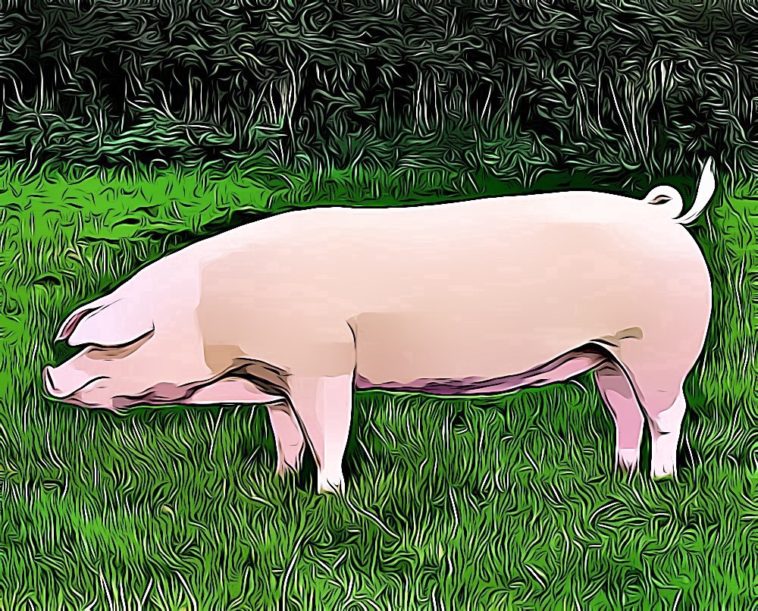h2>Dating : Faggots

He loved this time of year. Crisp, clear mornings or damp, gloomy afternoons, it didn’t matter. The cold didn’t bother him, neither did the rain nor the wind. He was indelibly weathered, having lived his whole life here on the hill and having worked outdoors for much of that time.
He loved this time of year because, at the first swirl of fallen leaves, his wife would start making her winter warmers for his tea. Delicious, gravy-laden pies, hearty stews, steak and kidney pudding, or his all-time favourite — pig’s liver faggots with mushy peas. His wife served the faggots in a pudding basin to ensure the rich, meaty sauce permeated everything. He ate it with a spoon, his nose running in the heat of the kitchen-diner after his day out in the elements.
He religiously started work at 8.30am and, as his own newly appointed boss, allowed himself to finish at 4.30pm. He was installed in his armchair half an hour later with a cup of tea, as his wife prepared food in the little galley kitchen behind him. As his infant son played on the rug before him, he rubbed his hands over the ends of the chair’s arms, a habit that had worn away the dark varnish to reveal the pale wood beneath. At these times, as the darkness outside enveloped his cosy little world, he was like a pig in shit. He glowed with the certainty that he was about to be royally fed by his cuddly wife, whom he loved unquestioningly, and beyond all reason.
The smell of frying onions made his stomach juice in anticipation, the meaty, metallic aroma of faggots began to adorn the air. His mouth watered as he crossed the small room to switch on the Roberts radio for the news. The maudlin tone of the bulletin didn’t dent his relaxed mood — he knew was in for a good meal.
His work that day had taken him to a site in the countryside, ten miles across the mountain. It had been a cold, dry day that brought everything into sharp focus as he drove over the summit. The view from up there was breathtaking on days like this. He stopped at a tourist’s viewpoint car park to take a moment to absorb the vista and have a smoke. He saw the winding road melting down to the valley below as if a grey ribbon had been carelessly draped across the camel-hair-coated mountain. On the other side of the river, at the bottom, the landscape changed. Limestone scattered pasture gave way to rich red soil. Parcelled shapes of vivid greens and earthy browns detailed the boundaries of many small farms, undulating to the horizon and Cardigan Bay, far off to the north west.
He stubbed his cigarette and turned the engine over. He could drive this snaking road with his eyes shut, if it wasn’t for the kamikaze sheep that occasionally shot out from the verges. He habitually drove so slowly that they would more likely hit him, rather than the other way around. He drove around ‘Tro’r Gwcw’ enjoying the pull of gravity at the outside edge of the hairpin. As the van descended, he passed clumps of bracken and gorse, dead brown to the world at the start of winter, it would be vibrant green and yellow when spring came. Lower down there was heather that would decorate the pale green grass in hues of blue and purple but was now dormant too. The sheep grazed fitfully in this seasonal austerity, occasionally sheltering from the wind as they carved out their time-worn tracks. They weren’t too bright, but no-one could call them inconsistent. As he crossed the bridge over the Cowslip, he saw the first vehicle to pass him that day, a flashy new Scimitar. There were rumours that Roger Moore lived near there. One of the dimmer girls in the village had reportedly seen him drive past Brynamman Post Office. When they asked her how she knew it was him she said, it was obvious, he had a halo over his head. As the Scimitar flicked by, he wondered if he was in close proximity to ‘the Saint’. On detailed inspection he realised it could only be him if he was disguised as an overweight old gent with a whiskey reddened face and a comb over.
He arrived at the old church in Capel Gwynfe and parked on the narrow road outside. He walked around to see the gravesite before vaulting the ivy covered wall to land in the yard of the farmhouse next door. He knocked on the tiny front door of the low cottage to ask Mrs Thomas for the cemetery key that she was custodian over.
Lovely day Mrs Thomas, how are you and Dai?
Very good thank you, said the farmer’s wife handing over the key. Dai’s down the back field with the pigs, but he’ll be back later if you fancy a chat and a cup of tea?
That’ll be great thank you. Nice people, lovely, and he was one hundred percent sure there’d be cake too.
He opened the unoiled gate and reversed the van with the back doors open, so he could see where he was going, up the churchyard lane to the grave. After unloading his tools for the day’s work, he went around the back of the church for a bucket of water and a quick pee. He glanced over the churchyard wall and could see the farmer down the bottom of the field tending to the pigs that roamed free, searching for acorns in the long grass. One of them wandered over to the low wall and he reached over to pat it’s perfect, pale flank.
As he stood there whistling, he wondered at the remoteness of the place and at the effort it took to get things done around here. As always, when he was in a remote place, he began to fantasise about the likelihood that one of these lonely days he would be suddenly visited by a UFO and whisked away into space. It was his favourite daydream. He loved the books of Erich Von Daniken and was a fully paid up convert of his wild archaeological re-imaginings. He truly believed that god was an astronaut from another planet. It made more sense than the commonly held creed, and was less worrying than the only other logical alternative, that there was no god. No, that would not do at all.
After a couple of hours, he had finished cutting and gilding the letters on the headstone. He went back to the van to eat his sandwiches while the paint dried, did the Daily Mirror crossword, read the sports pages and cast scorn on his horoscope before completing his work by scraping off the excess gold size from the polished granite surface. While standing back to admire his work he wondered how long it would be there, centuries probably, way longer than his fleeting existence anyway. It was a sobering thought that was only chased away by the thought that a nice cup of tea awaited him in the farmhouse.
Mrs Thomas welcomed him into the dark parlour. The room smelled of cake and the acrid tang of fly paper, which hung in coils from the oak beams of the ceiling. There was a large ham hanging from a hook near the roaring fire, the light of which glinted across a variety of ornaments and picture frames. A lugubrious clock emitted a heavy tick in the quiet space. In the chair near the black iron fireplace he could see the slumped figure of Mr Thomas and was sorry that he would be the cause of his disturbed snooze. Dai, the stonecutter’s here to see you, shall you have your tea now? Mrs Thomas tugged at the tweeded arm. The farmer roused and greeted the younger man, repeating the offer of a cup of tea, and you’ll have some cake of course.
With a scalding bone china cup of tannic tea, and a perfect slice of sponge cake each, they settled to a chat about the weather and the likelihood of snow. The cups were like doll’s house crockery in their thick, working men’s fingers, and the contents, and two refills, were soon despatched and the meteorological permutations exhausted.
He bid his farewells and set off back over the mountain before it got dark. The frost could come down hard up there and he didn’t fancy risking his narrow tyres if it was icy, or it snowed. He reached the top in time to see the last rays still playing across Swansea Bay, twenty miles away. He could already see the Mumbles lighthouse winking in the gathering gloom. His stomach gave a grumble as he thought of the dinner waiting for him at home like a beacon in the darkness, drawing him in to safety. He decided to leave the tools on the van overnight to save unloading at the workshop a further mile away. He could do that in the morning.
He tapped the kitchen window twice as he walked around to the back door to signal his arrival, as he had for years now, and would do, for ever more.



